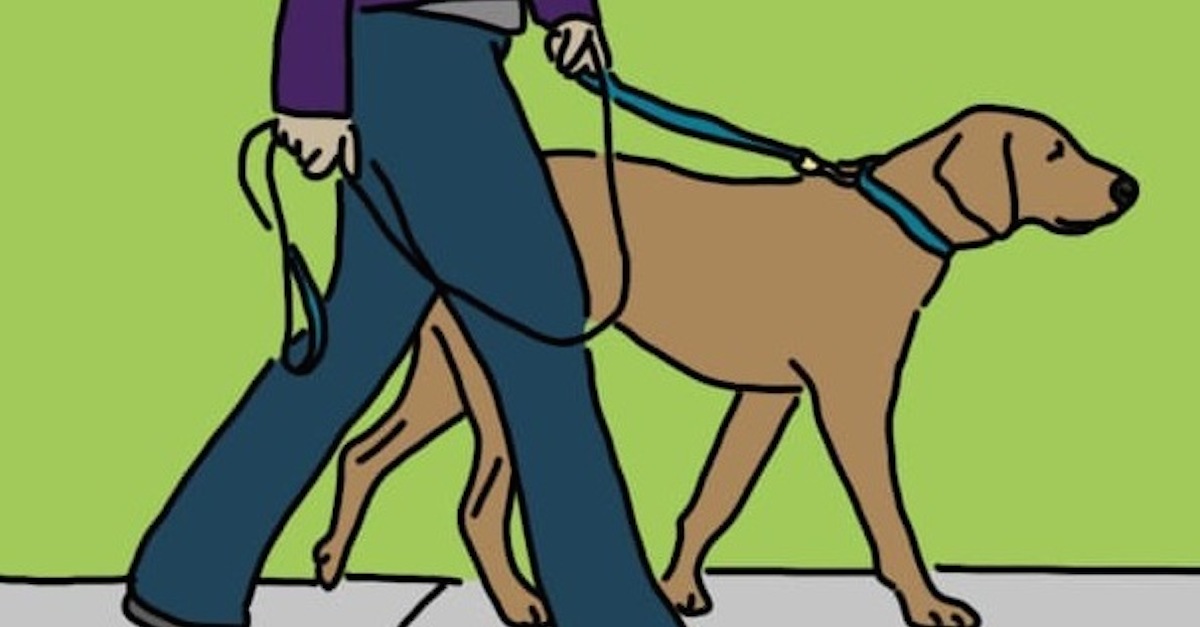
We all know it's important to treat our dogs just like any other member of the family.
And that's why all dog owners should ideally be very observant of their pup's body behavior, in order to catch any abnormal occurrences or health issues, like doggie depression.
In an exclusive look below, we'll take you through a few of the ways you can monitor your pup's bowel movements, and some steps you can take to remedy problems like constipation.
For those who have recently gotten brand-new puppies, we've got some tips for you as well — from how to gently and correctly potty train your pooch and how to establish a helpful daily routine, to smart dos and don'ts when house training your dog.
More from LittleThings: Family Sells Normal Looking House, People Walk In To Find It Completely Covered In Purple
Scroll down to find out how you can help soothe and improve your pooch's bowel movements, and let us know your thoughts in the comments below!
1. When Does Your Pup Need To Go?
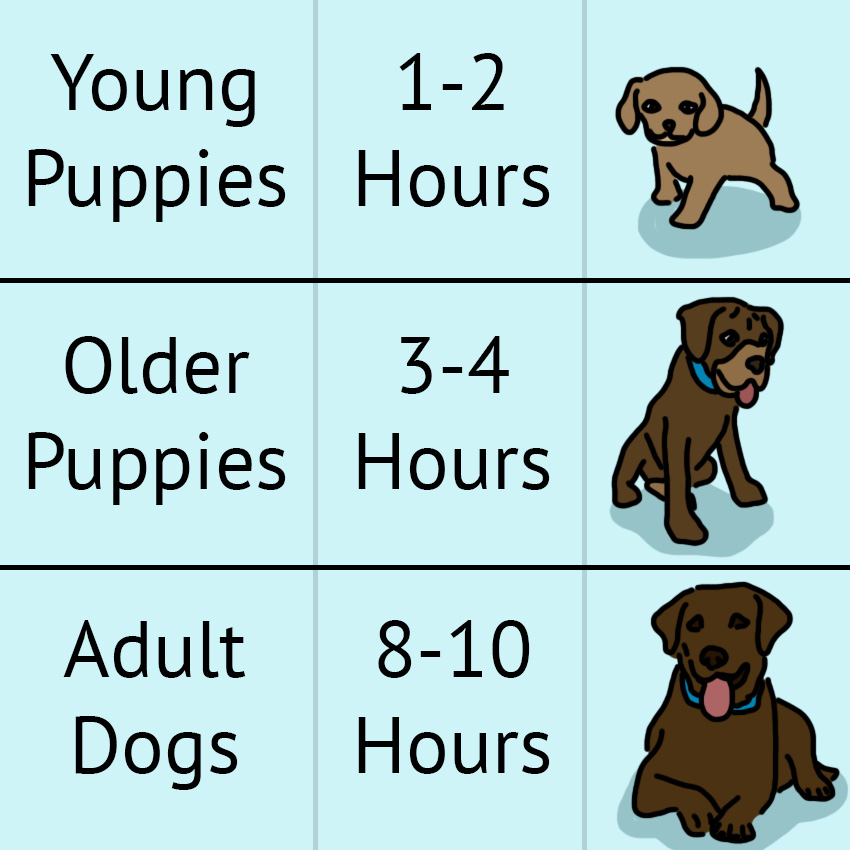
Every dog is different — but as a general rule, the chart above is a wonderful guide to follow.
It explains the different lengths of time that dogs of different age groups can normally wait between each bowel movement.
If you have a young puppy, don't wait more than one to two hours to bring them outside.
If your puppy is slightly older, you can wait between three to four hours.
If your dog is completely house trained, they will definitely fare better at being home alone and not making a mess inside. Dogs like this can wait around eight hours to use the bathroom.
2. How To Potty Train A Young Puppy
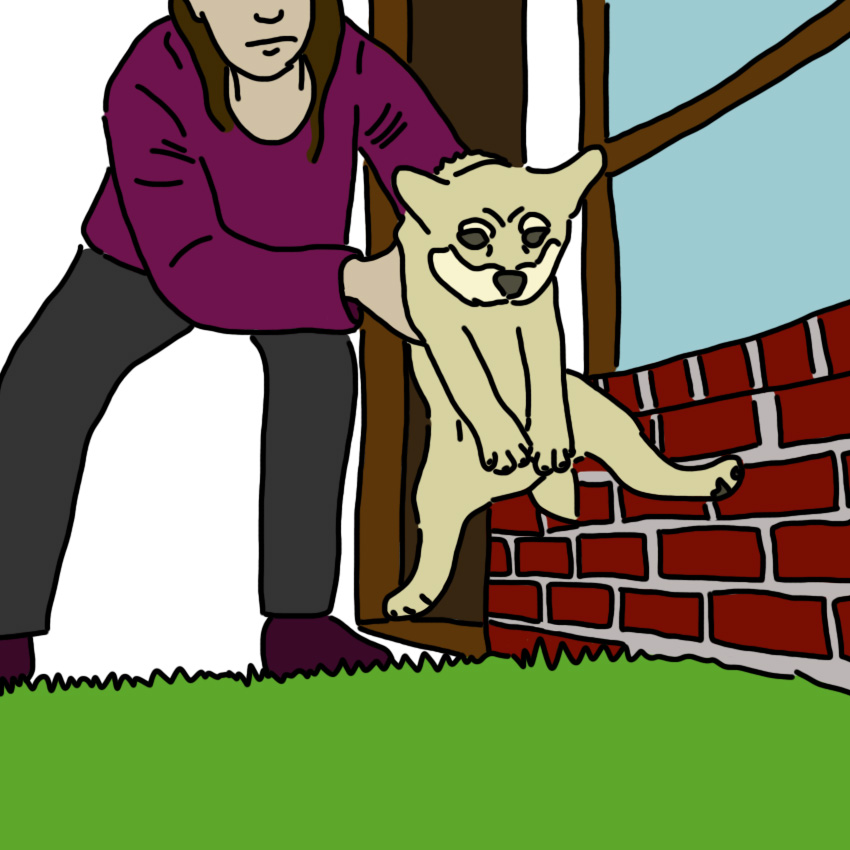
When potty training a puppy for the first time, it is up to you to anticipate their every move.
During the first week, it's best to take your puppy outside every hour. Use treats, keywords, and praise to positively encourage them to go to the bathroom.
By using treats and the same words over and over again, you're making a connection in their minds between reward and action.
It's important to not let your puppy play during potty time. Give your pup five to 10 minutes to go potty. If he still hasn't pooped, that's OK. Just repeat the process in another hour.
Over time, you'll learn to pick up on how your dog signals that he has to pee or poop.
3. Establishing A Daily Routine
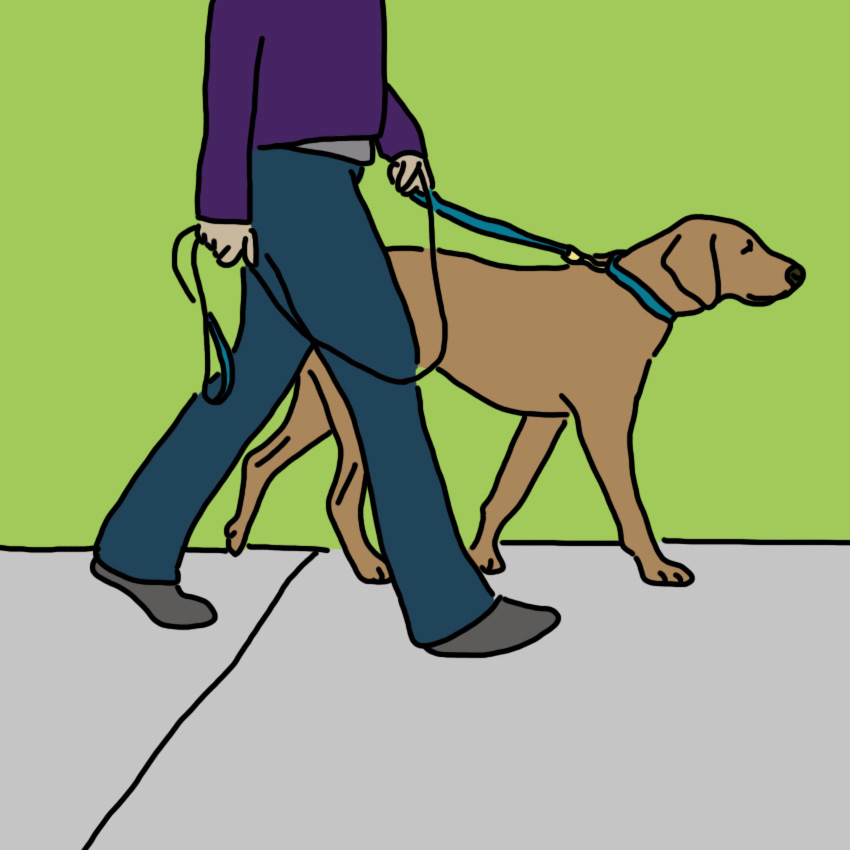
More than anything, your pup wants to live a life full of routine.
Make sure that you walk him first thing in the morning. If you don't let your dog out right away, he will think that you have forgotten him, and maybe start going potty inside the house.
So, in order not to confuse your dog, stick to the routine morning trip outside. The more you stick to the routine, the more efficiently your dog will learn to go potty during that time.
Additionally, try your best to feed your dog at the same time each day, and let him outside to poop five to 10 minutes after he stops eating.
Always walk him right before you leave the house to go to work, and always take him outside first thing when you get back.
Finally, you and your dog should always have the same bedtimes. Try to take him out one last time at least 10 minutes before hitting the hay.
4. Knowing The Signs
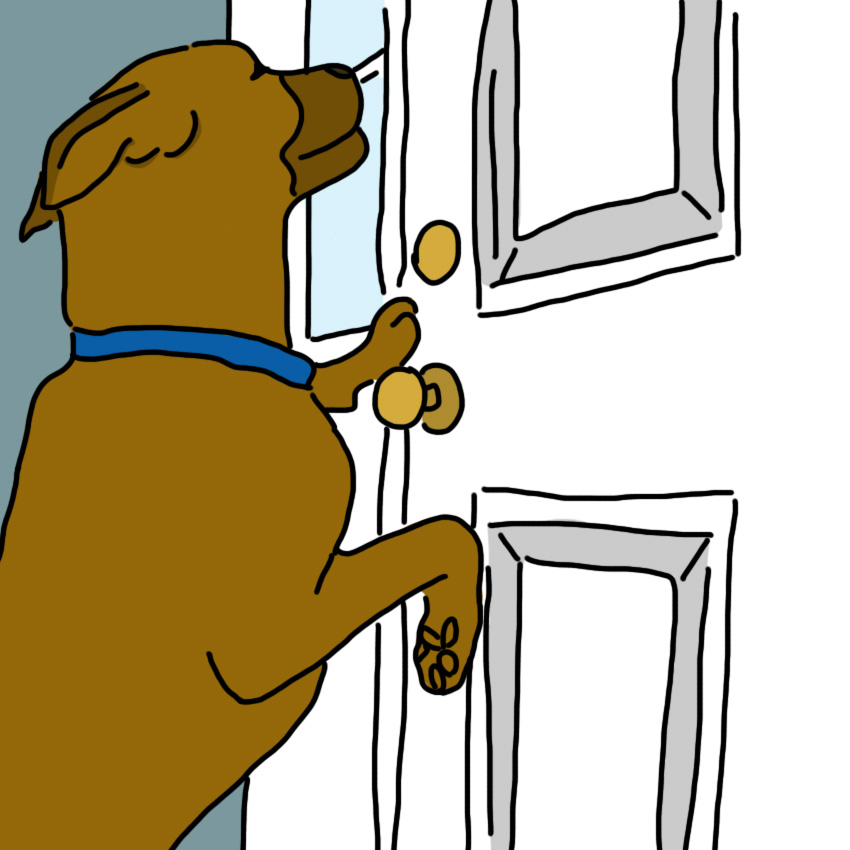
A while after your dog has been introduced to potty training, he will learn to get your attention to go outside.
As a general rule, whenever your pup suddenly stops and looks at you, chances are, he either wants something (think food, water, or playtime), or he wants to go potty outside.
Many dogs also whine, circle around you, scratch at the door, and bark when they need to go outside.
5. Expect Accidents And Mistakes
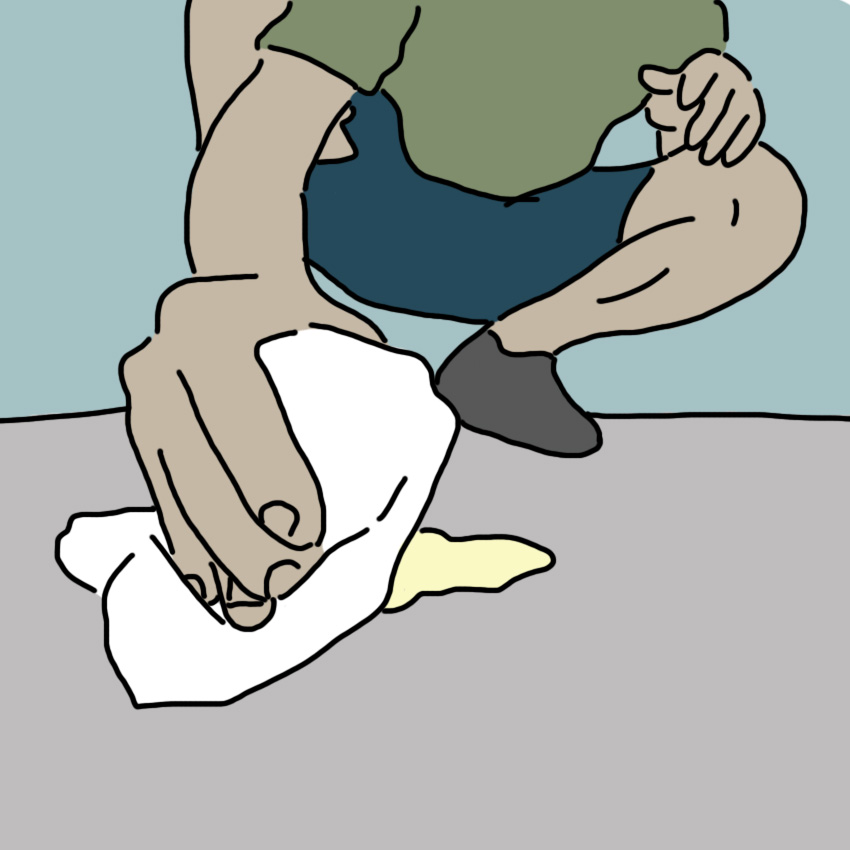
Remember to be patient when house training a young pup, or a dog who is being potty trained for the first time.
Little accidents are common in puppies up to a year old, so you're definitely not alone. In these situations, don't give up on the training!
When you do catch your puppy going potty in the house, immediately stop him, and take him outside to his bathroom spot, and use the keyword. Praise him and give him treats after he finishes outside.
At this point, scolding your puppy, making him look at the mess, or rubbing his nose in it, will only make him scared of the potty training routine.
Make sure to clean the soiled area, because your puppy may be encouraged to eliminate again in areas that smell like urine or feces.
6. Reasons Your Dog Won't Poop
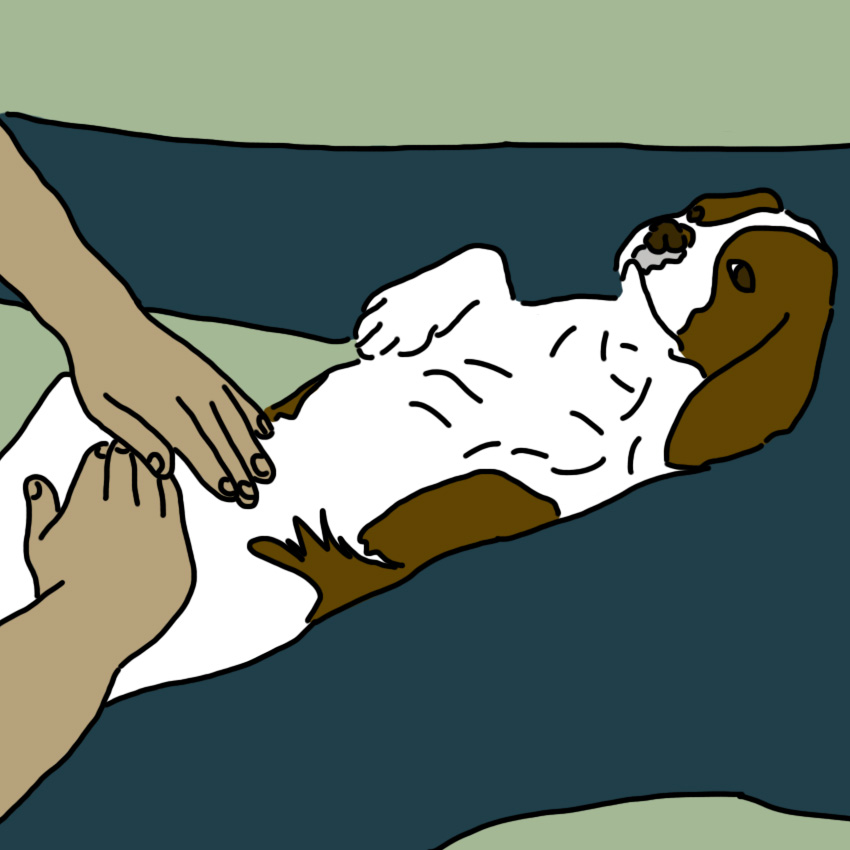
It can be frustrating when your dog won't poop, even if you're taking all the right steps. In these cases, it's wise to look at some other factors.
First off, your pup may be having a medical issue. It's important to check up with your vet before proceeding with any treatments.
Secondly, dogs usually have a tough time going potty when they're not in a peaceful environment. If you're standing in a new, unfamiliar area, or in a place with lots of noise and people, they may reject the idea of going to the bathroom outside.
A simple exercise is to give your pup a nice tummy rub whenever they're finding it difficult to go potty. Try rubbing in a gentle, clockwise motion to help get things moving along.
7. Signs Of Constipation
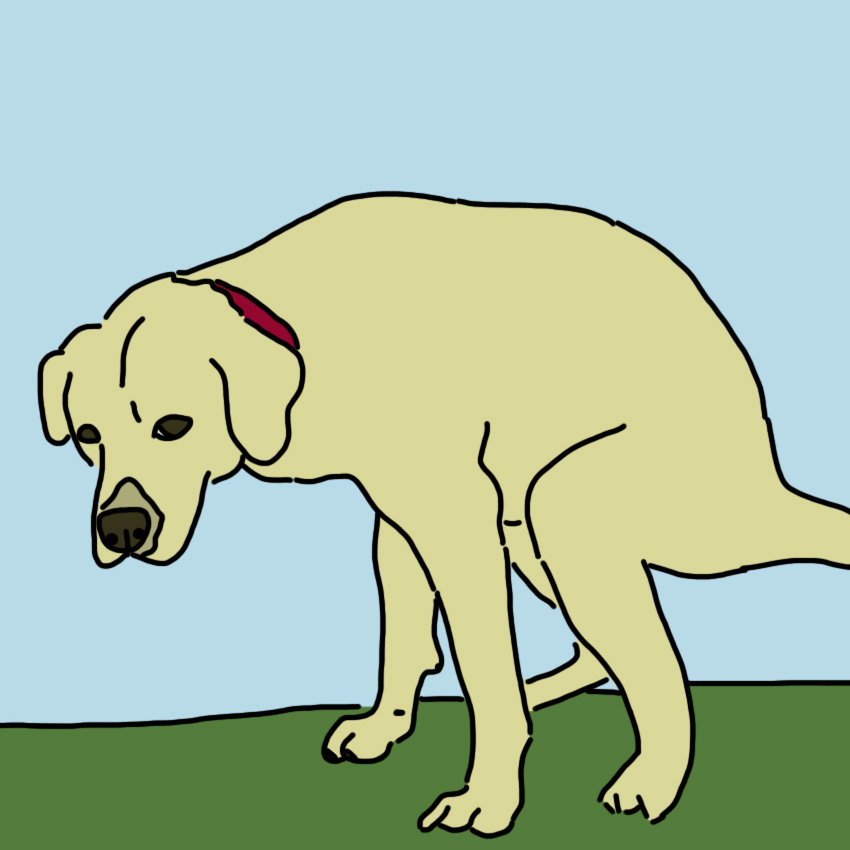
You should pay the vet a visit whenever your dog has not had a single bowel movement in over two days.
There are also a few telling signs of constipation. Whenever your pup crouches while straining, or whimpers when trying to poop, it could mean that he is constipated.
Pet care expert Dr. Karen Becker also suggests observing whether your dog appears bloated. A constipated pup can still pass stool, but it's usually darker than usual, smaller, and can have blood and mucus inside.
In worse cases, dogs can begin to vomit and lose their appetites completely. That's why it's crucial to monitor your dog's bowel movements each time he goes outside, to see if the "quantity of urine and feces, the color, texture, and smell" are all regular, says Dr. Becker.
8. Reasons For Constipation
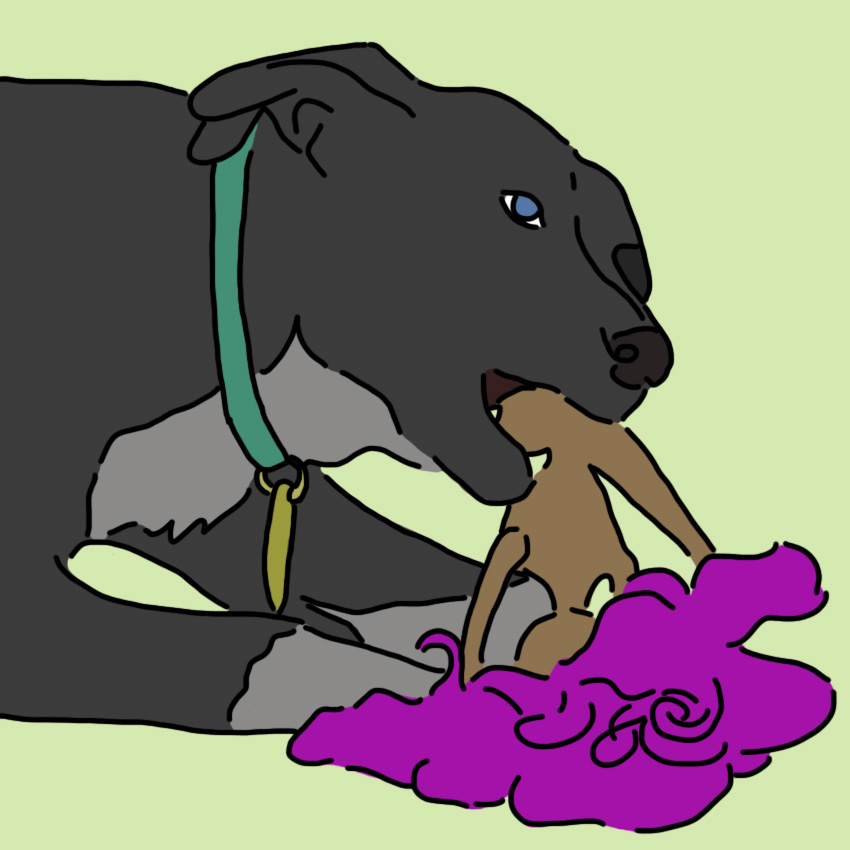
According to WebMD, constipation in dogs can be caused by too little fiber in the diet, a lack of exercise, obesity, a lack of grooming, and injuries or trauma to the pelvis, among other reasons.
Dogs can also become constipated if they have accidentally ingested things like stones, dirt, plants, and bones, which could obstruct the inside of the colon.
One of the most frequent causes is actually dehydration — so it's important to keep an eye out for dry, hard stools that your pup may pass.
Other more serious causes include intestinal tumors and masses, neuromuscular disorders involving nerve damage to the colon, stress brought on by surroundings, and diseases like hypothyroidism and hypercalcemia.
9. Suggested Diet Changes
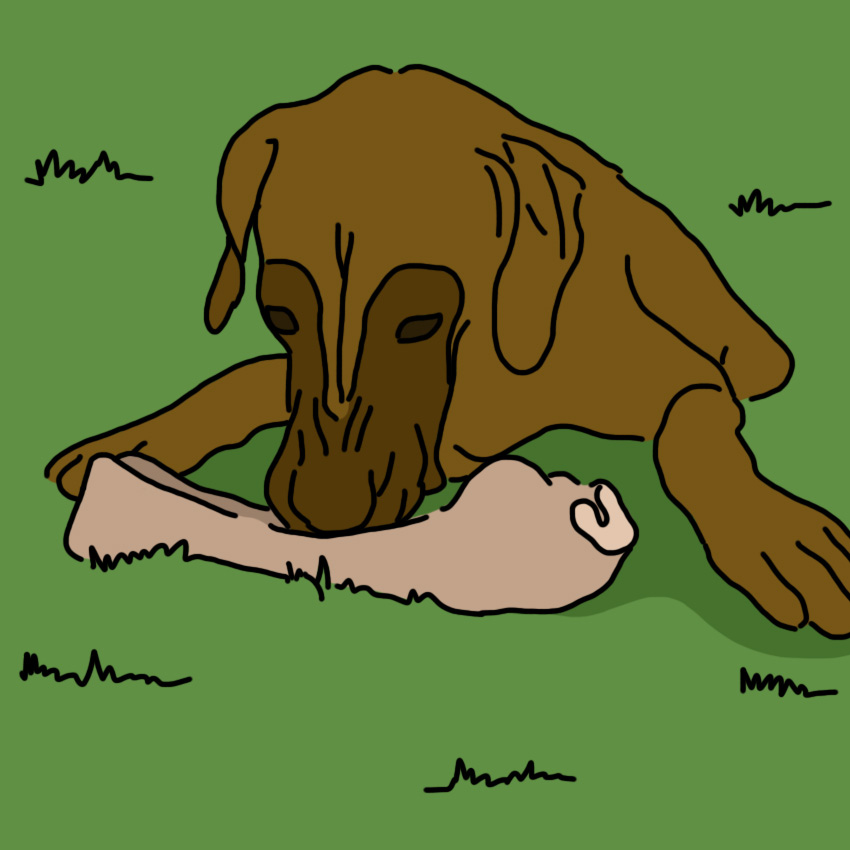
There are several things you can do to remedy short bouts of constipation.
First, make sure that they're eating a "species-appropriate diet," recommends Dr. Becker. In some cases, eating an excess of dry, processed foods and snacks may not be the best for their tummies. Try feeding your pup a little bit of raw meat, or balanced, cooked meals.
Help your pup's bowels along with additional dietary fiber, like ground, dark green leafy veggies, husk powder, and canned pumpkin.
As with humans, natural probiotics can also do wonders for the bowels. Organic ingredients like apple cider vinegar and aloe can also help speed up the recovery.
And, as always, make sure that your dog gets plenty of exercise and fresh water.
10. Don't Get Stressed
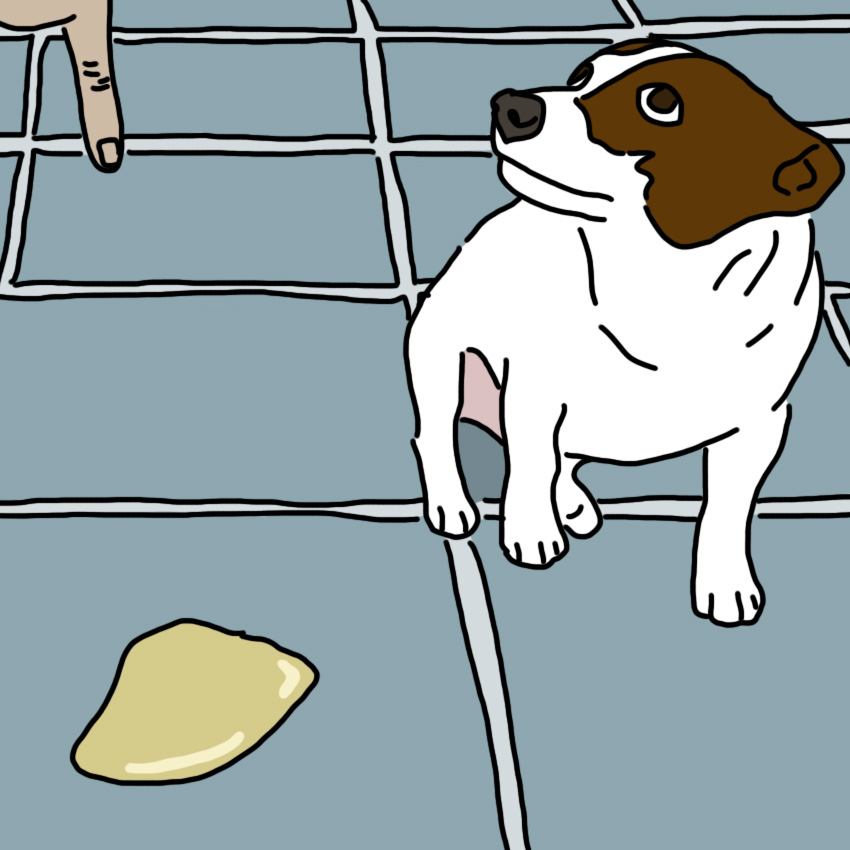
Dog guru Cesar Millan believes it's important to establish a positive energy around your pup.
"If you are feeling nervous or impatient or are trying to rush a puppy to relieve herself, that can also stress her out," he wrote.
Definitely avoid any sort of punishment, because dogs generally aren't capable of relating your anger directly to their accident.
Try to stay outside longer with your pup to allow him to explore a bit, and find a spot that feels safe and familiar, so that the training will go easier.
11. Plan For When You're Away
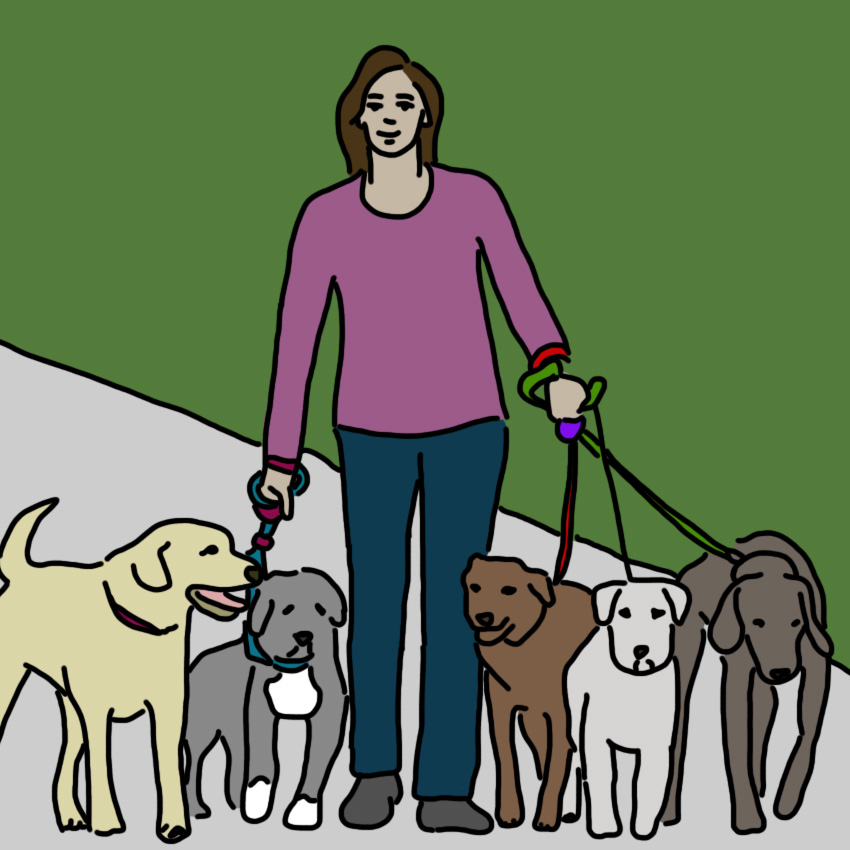
If you happen to have a puppy, try to make preparations for when you need to leave for more than four to five hours at a time.
You can ask a friend, a responsible neighbor, or a pet sitter to take the pup outside regularly in your absence.
Or, you can train your pup to poop in a specific place inside the house. But be careful of this, as your pup may grow overly dependent on pooping only in the house, or only on certain surfaces.
Please SHARE these incredibly useful potty training facts and tips with all friends and family!




